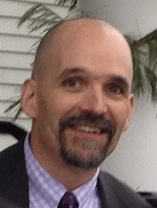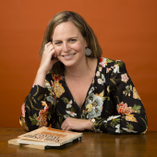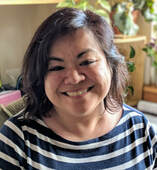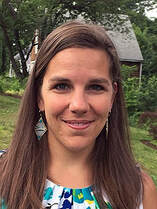Spring 2019 HSTEM Course
The seventh iteration of the HSTEM course in the Spring of 2019 had 9 students and 4 faculty/staff facilitators. The students worked on 3 different projects that follow the themes of past courses' projects. They presented their results in a summit at Brown on April 25th, in conjunction with students from Yale University and Brown University. Explore more about their projects below.
Outreach to Local Elementary School Students
Following the project theme, "Supporting Engagement of Elementary School Aged Children in STEM," Lauren McNeil ‘21, Alicia Ugenti ‘21, and Kate Weiss ‘19 developed an interactive activity for their table at a Science Night with local elementary school children. After reading literature regarding the importance of positive STEM experiences at early ages for the matriculation into a career in STEM, they knew the activity should be interactive and understandable to capture children’s interest. At the Science Night, there were many stations that attendees cycled through, and it's safe to say that our group's activity station was definitely a favorite! The children were invited to extract DNA from strawberries, which they could take home, and then dress up in a lab coat and goggles for a polaroid photo to remember their time and solidify their identity as a scientist.
Consolidating STEM Resources at Amherst College
Following the project theme of "Expanding/Deepening HSTEM Interventions at Amherst College," Natalie Braun '19, Sam Amaka '19, and Eddie Rego '19 saw a need for making the various resources available for STEM students more accessible. They found that academic resources including tutoring, mentoring, and research opportunities were plentiful, but these resources were neither easy to find nor consolidated across departments. They gathered a list of resources and formatted them into a timeline to assist students as they navigate STEM at Amherst.
Examining Mental Health in STEM at Amherst College
The final group of 3 students also followed the project theme of "Expanding/Deepening HSTEM Interventions at Amherst College."
This semester, Jada Palmer '19, Sai Chauhan '20, and Erika Zambrano '19 formulated a guide to help students with mental health issues navigate STEM at Amherst College. They worked to increase awareness of and decrease the stigma around mental health issues and accommodations, with a particular focus on the STEM community at Amherst. They aimed to contextualize university policies toward mental health and accommodations as well as offer advice to students seeking support.
This semester, Jada Palmer '19, Sai Chauhan '20, and Erika Zambrano '19 formulated a guide to help students with mental health issues navigate STEM at Amherst College. They worked to increase awareness of and decrease the stigma around mental health issues and accommodations, with a particular focus on the STEM community at Amherst. They aimed to contextualize university policies toward mental health and accommodations as well as offer advice to students seeking support.
Amherst Humans in STEM Panelist Profiles
Early in the semester, the HSTEM class worked hard to plan a salon in Amherst's Center for Humanistic Inquiry (CHI) entitled "Amherst Humans in STEM." The salon marked the intersection of the Humanities and STEM as the students introduced and led a discussion among Amherst faculty and staff in STEM. All of the four panelists are all participants in the faculty learning community on inclusive pedagogy in STEM. Working in pairs or small groups, the students interviewed one of the panelists, prepared an introduction for the salon, and wrote a brief profile about why their panelist practices STEM in a liberal arts setting and how they incorporate the human into their STEM classes, labs and research. Read those profiles below.
Prof. Stephen Cartier, Visiting Professor of Chemistry
|
Professor Stephen Cartier’s journey in STEM began when he thought it was just ending. After graduating as a chemistry major from Boston College, he swore he would never do chemistry again. Post-graduation, Professor Cartier joined the Peace Corps, where he taught high schoolers physics and chemistry in Togo for three years. This transformative experience forced Professor Cartier to relearn physics and chemistry and develop engaging lessons to teach to his French-speaking students. It was this experience that motivated Professor Cartier to attend graduate school for physical chemistry at Penn State. |
Dr. Sarah Bunnell, Associate Director for the Center for Teaching & Learning, STEM Specialist
|
Dr. Sarah Bunnell is the Associate Director & STEM specialist for the Center for Teaching
and Learning. Prior to joining Amherst, she was a tenured Associate Professor of Psychology and Great Lakes Colleges Association Pedagogy Fellow at Ohio Wesleyan University. She received her Ph.D. in Developmental and Cognitive Psychology from the University of Kansas. She grew up in Kansas City, in a family where education was very important. She had attended Middlebury after applying Early Action. She has always been very data-oriented and very math-oriented. So much so, that she was a "Math-lete" in middle school, and in fact was the only girl on the team. |
Prof. Dianne Pater, Visiting Assistant Professor of Biology and Consortium for Faculty Diversity Scholar
|
Professor Dianne Pater is a visiting professor at Amherst College, currently on her last semester here. She is a first-generation American and first-generation student who has experienced a non-traditional path in academia. Her family’s migration from the Philippines was difficult and after attending undergrad at Boston University, she dropped out due to personal difficulties and lack of support. After starting a family, she returned to community college and later transferred to the lab technician program at the University of New Mexico. At UNM, she switched to a biology major and fondly remembers conversations with plant physiology professor during office hours.
|
Prof. Katharine Correia, Assistant Professor of Statistics
|
Katharine Correia is an Assistant Professor of Statistics at Amherst College whose second semester is underway. She is currently teaching Intermediate Statistics and Introduction to Statistics via Modeling for the Spring of 2019. She is a member of the Faculty Learning Community on Inclusive Pedagogy. Professor Correia received her B.A. at Mount Holyoke College in 2007, her M.A. at Boston University in 2009, and her Ph.D. at Harvard University in 2018. At Mount Holyoke, she did not go in with the intention to pursue STEM but had to take some courses due to the general requirements. Math had been easy for her in high school, so she took a statistics course, believing that it would not be difficult. It was, in fact, difficult, but she ended up loving the professor and the subject.
|
Visitors to the Course
This semester, the HSTEM students were invited to attend two events outside of class to meet some interesting humans in STEM. The first visitor was Dr. Kendra Frederick of UT Southwestern, who came to campus to give a seminar presentation in the Chemistry department. The students were invited to have lunch with Dr. Frederick to learn more about her pathway through STEM as a LGBTQIA scientist and parent. The students enjoyed the lunch and those who attended the seminar loved the opportunity to hear more about her research. Here is her presentation abstract:
|
"In-cell structural biology of proteins behaving badly." The misfolded proteins associated with neurodegenerative disease can adopt a variety of different conformations, some of which are toxic. Because these proteins have identical amino acid sequences, the cellular environment clearly influences the final state, yet most structural studies do not include the cellular context and, perhaps because we are not studying the correct conformation, not a single therapeutic strategy for these diseases addresses the underlying protein misfolding pathology. Using new sensitivity-enhancement technology for solid state NMR spectroscopy, we study protein structure in native environments - inside living cells - to reveal how both healthy and disease-relevant cellular environments influence protein structure.
|
The next visitor was Dr. Bryan Dewsbury of the University of Rhode Island. Dr. Dewsbury came to Amherst to present at a CHI Salon on The Promise and Practice of Inclusive Teaching. After the salon, the HSTEM students and Dr. Dewsbury had dinner together. Natalie Braun (class of 2019) wrote an article on her experience at the dinner, which you can read here. Having visitors to the class was a great way to open more dialogue on Being Human in STEM.
Inclusion and Representation in the Sciences Summit at Brown University, April 25, 2019.
This semester, we spent an afternoon and evening at Brown University to connect with our HSTEM partners. Students from our course at Amherst College, the Being Human in STEM course at Yale University, and the Race and Gender in the Scientific Community course at Brown University gathered to present posters on their projects. Visitors came from other institutions including Williams College and the University of Rhode Island. Three of the pioneers from the Brown course - Amy Butcher, Abigail Plummer, and Jamelle Watson-Daniels - gave a keynote presentation. The poster session followed, and we concluded the evening with a dinner discussion.




